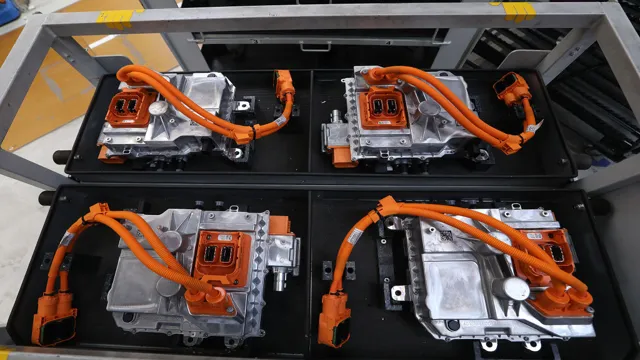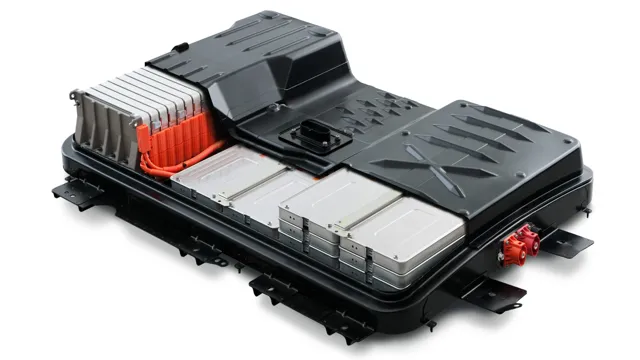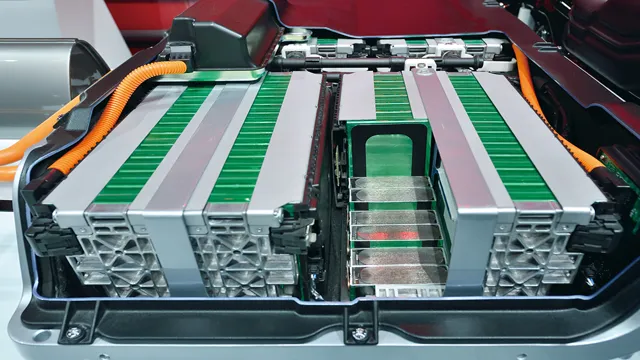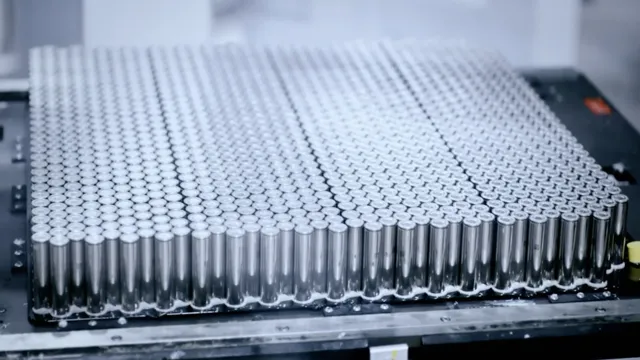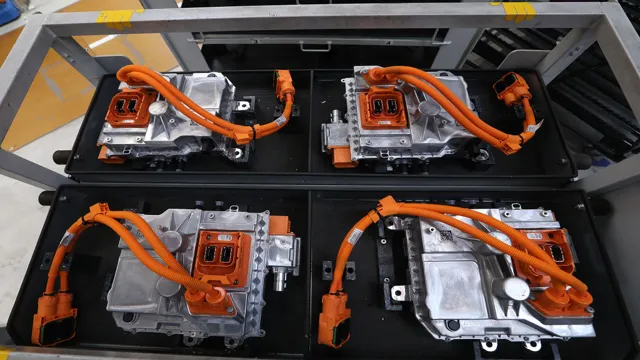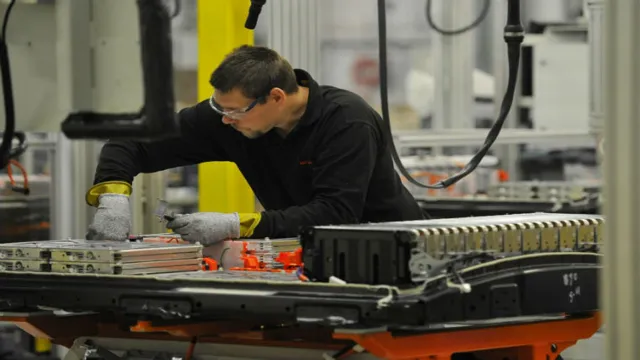Uncovering the Truth: Will Electric Car Batteries Degrade if Not Used?
Electric cars are now one of the most popular modes of transportation for many people, and with good reason. They are environmentally friendly, cost-efficient, and require low maintenance. However, one issue that has been worrying electric car owners is their battery’s degradation when not used.
Electric car batteries lose their capacity over time due to several factors, including temperature, charge level, and usage patterns, and if the car is left idle without being used for an extended period, this can result in accelerated battery degradation. But what is the reason behind this, and how can you protect your electric car battery? In this blog, we will explore the causes of battery degradation and provide you with some practical tips to help prevent it. So, buckle up, and let’s dive in!
Introduction
If you own an electric car but haven’t been using it for a while, you might be wondering if its battery is still in good shape. Well, the answer is yes and no. In general, electric car batteries do degrade over time due to natural chemical reactions that occur even when the battery is not in use.
However, the rate of degradation varies depending on several factors, including the type of battery, the temperature it’s exposed to, and how it’s stored. Lithium-ion batteries, which are commonly used in electric cars, can lose up to 20% of their capacity in the first year of non-use and up to 4% in subsequent years. To prevent premature degradation of your electric car battery, it’s important to store the vehicle in a cool and dry place, keep the battery charged to around 50%, and perform maintenance tasks regularly.
Understanding Electric Car Batteries
Electric car batteries are essential components of electric vehicles as they power the vehicle’s operation. Electric car batteries are rechargeable, and their function is to store the energy needed to drive the car’s electric motor. The battery pack is one of the most crucial components of an electric car, as it determines the vehicle’s range and overall performance.
Unlike conventional cars, electric vehicles rely on batteries to operate, and as such, the battery’s quality and technology used are critical to the vehicle’s efficiency. Therefore, understanding electric car batteries is essential to grasp the capabilities and limitations of electric cars.
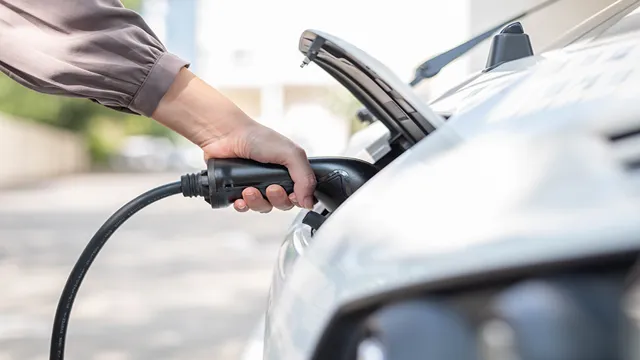
Factors That Affect Battery Degradation
Battery degradation is a natural phenomenon that occurs over time, as batteries lose their ability to hold a charge and perform at their optimal capacity. There are several factors that can affect the rate of battery degradation, including the age of the battery, the number of charge cycles it has gone through, and the level of usage. The type of battery and its chemistry also play a significant role in determining how quickly it degrades, as do factors such as temperature, humidity, and exposure to sunlight.
Understanding these factors and taking steps to mitigate them can help prolong the life of your battery and ensure that it performs at its best for as long as possible. By monitoring your battery’s health and taking appropriate measures to care for it, you can keep your devices running smoothly and avoid the need for costly replacements.
What Happens to Electric Car Batteries When Not Used?
Electric car batteries can degrade over time, even if they are not used. This is because batteries consist of chemicals that can break down over time, especially if they are not used or charged regularly. Lithium-ion batteries, which are commonly used in electric cars, are particularly vulnerable to degradation if they are left unused for extended periods of time.
This can lead to a loss of storage capacity, reduced performance, and ultimately, the need to replace the battery altogether. To prevent this from happening, it is recommended that electric car owners keep their batteries charged and drive their cars regularly, even if it is just for short trips. Additionally, storing the battery in a cool, dry place can help to slow down the degradation process.
So, if you want to get the most out of your electric car battery, make sure to use it regularly and take proper care of it when it’s not in use.
Battery Self-Discharge
Battery Self-Discharge Electric car batteries have become progressively more durable and long-lasting over the years. You may be wondering what happens to electric car batteries when not used. One of the main concerns with electric car batteries is battery self-discharge.
This occurs when the battery slowly discharges over time, even when it is not being used. The primary factor in battery self-discharge is temperature. A battery that is stored in a very warm environment can self-discharge significantly faster than one in a cooler location.
Moreover, a battery that is depleted may degrade and charge slowly. You can help prevent this from happening by keeping your electric car battery at an optimal temperature, avoiding complete discharge, and not storing it for very long periods. Always keep in mind that maintaining an electric car battery takes more effort than keeping a traditional car battery.
However, it does cause less adverse impact on the environment, and it is worth putting in the extra effort to maintain it.
Battery Capacity Loss
Electric car owners often wonder what happens to their car batteries when they are not used. The truth is that electric car batteries do lose capacity over time, even if the car is not actively being used. This is due to something called self-discharge, which is the loss of battery capacity that occurs when a battery is not used or charged for an extended period.
Additionally, extreme temperatures, both hot and cold, can also cause battery capacity loss. So, if you are an electric car owner, it is important to keep in mind that you should try to use and charge your car regularly, even if you aren’t using it frequently. This can help to prolong the life and capacity of your battery over time.
How to Maintain an Unused Electric Car Battery
If you own an electric car but you’re not driving it regularly, you may be wondering if the battery will degrade over time. The short answer is yes, but there are steps you can take to maintain the battery’s health even if you’re not using it frequently. One of the most important things you can do is to keep the battery charged to an appropriate level.
If you let the battery drain completely, it can cause irreversible damage. You should aim to keep the battery between 50% to 80% charged when not in use. Additionally, you can invest in a battery maintainer or trickle charger to keep the battery charged and prevent it from deteriorating.
It’s also a good idea to store the car in a cool, dry place to minimize the effects of temperature changes. With proper care, your electric car battery can last for many years, even if you’re not driving the car frequently.
Battery Storage Tips
As electric cars become increasingly popular, battery storage tips are becoming more important. One of the most important things to consider when maintaining an unused electric car battery is to keep it charged. If your car battery is not charged regularly, it can lose its capacity.
A good rule of thumb is to charge your electric car battery at least once a month. It is also important to avoid exposing your electric car battery to extreme temperatures, whether hot or cold. This can cause damage to the battery and reduce its efficiency.
To protect your battery, try to park your car in a cool, dry area and minimize exposure to direct sunlight. Another helpful tip is to occasionally take your electric car for a short drive, which can help keep the battery refreshed and maintain its capacity. These simple steps can help you extend the life of your electric car battery and ensure that it continues to operate at optimal levels.
Battery Maintenance Tips
Maintaining the battery of an unused electric car is essential to ensure its longevity and performance. To begin with, it is recommended to store the vehicle in a dry and cool place, away from direct sunlight. A warm battery is more prone to deterioration, and a cool battery retains its charge and functions better.
However, it is crucial to keep the battery charged as well. Regularly charge the battery for a few hours, even if you don’t use the car, to avoid deep discharge and loss of capacity. Avoid overcharging the battery, as it can damage the cells and reduce its lifespan.
It also helps to clean the terminals and connectors of the battery regularly, as corrosion can disrupt the flow of energy. By following these tips, you can maintain your electric car battery effectively and keep it in top condition, ready to roll when you need it.
Conclusion
In short, yes, electric car batteries do degrade if not used. Just like any other piece of technology, they require maintenance and attention to ensure they don’t deteriorate over time. So, if you’re considering an electric car, be sure to take it for a spin every so often to keep its battery charged and healthy.
Because let’s face it, a car with a dead battery is like a horse with no gallop, it’s just a dead weight.”
FAQs
How long can electric car batteries sit unused before they start to degrade?
Electric car batteries can typically sit unused for a few weeks or even a few months before any significant degradation occurs. However, it’s important to keep them charged and avoid letting them fully discharge, as this can cause more rapid degradation.
Can you extend the lifespan of an electric car battery by storing it in a specific way?
Yes, storing an electric car battery in a cool, dry location can help extend its lifespan. Additionally, keeping the battery at a partial state of charge (around 50-60%) when not in use can also help prevent degradation.
Is it necessary to use a specialized charger for electric car batteries, or can any charger be used?
It’s generally recommended to use a specialized charger designed for electric car batteries, as these chargers are specifically calibrated to avoid overcharging or undercharging the battery. However, in an emergency situation, a standard 120-volt outlet can be used to trickle-charge the battery.
What happens to an electric car battery if it’s left unused for too long?
If an electric car battery is left unused for an extended period of time (e.g. several months), it can begin to degrade and lose its storage capacity. Additionally, the battery’s internal components can begin to corrode, making it unsafe to use. To avoid this, it’s important to either keep the battery in use or properly store it using a battery tender or other specialized charger.
